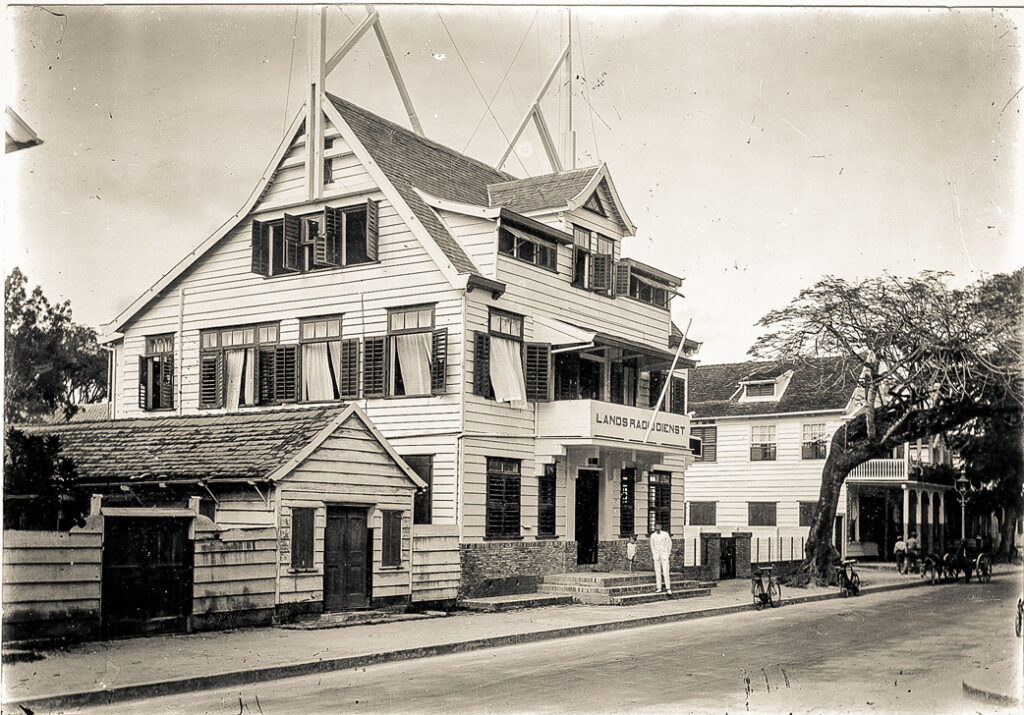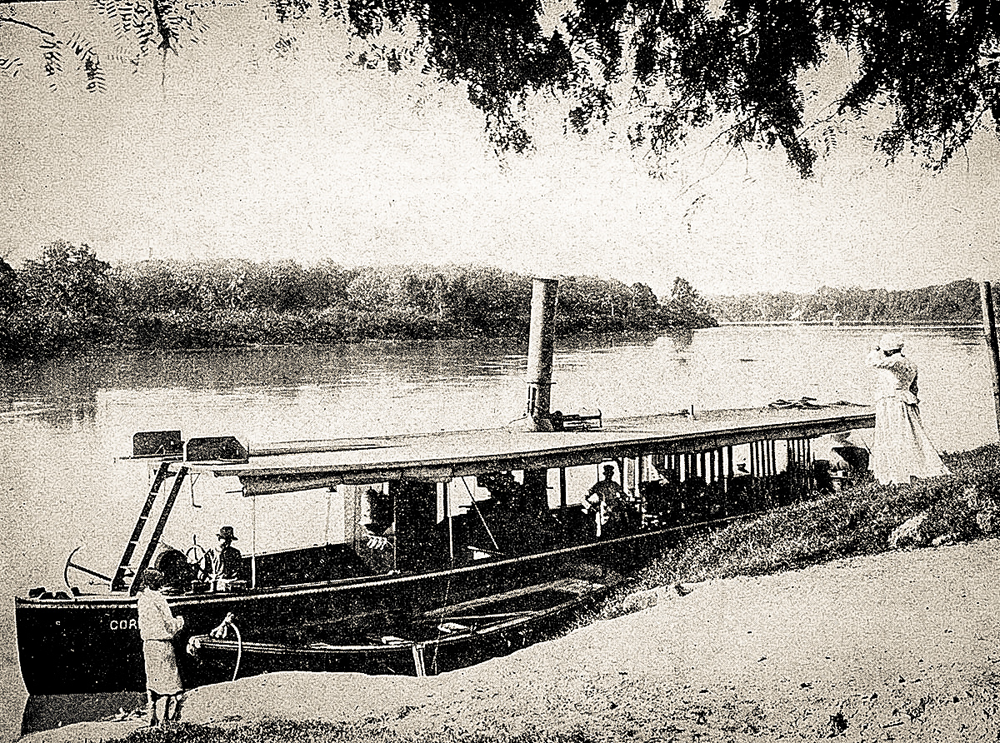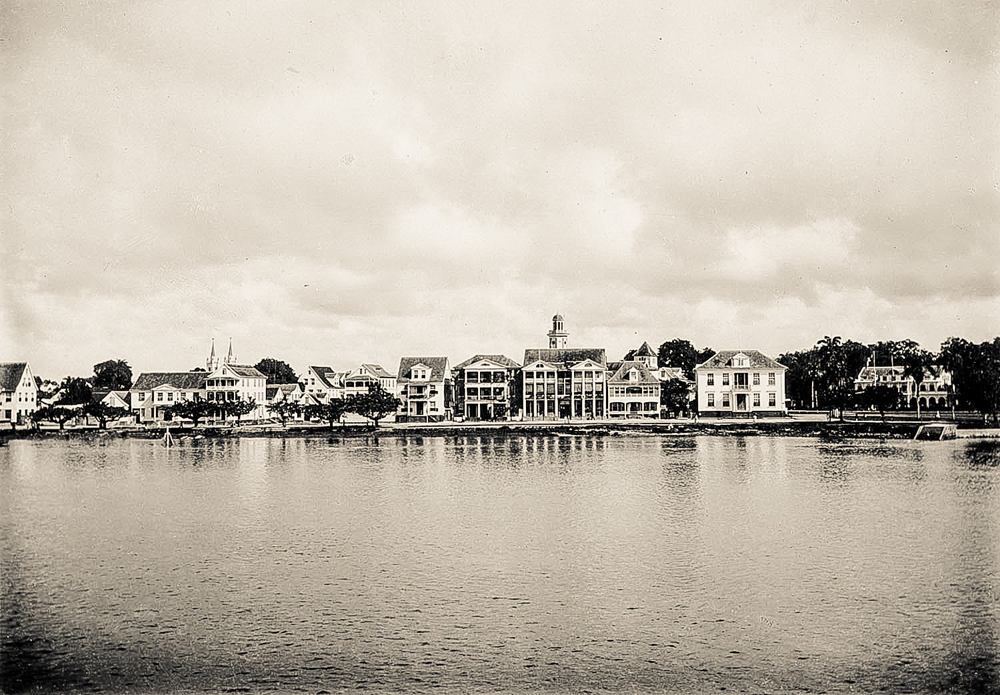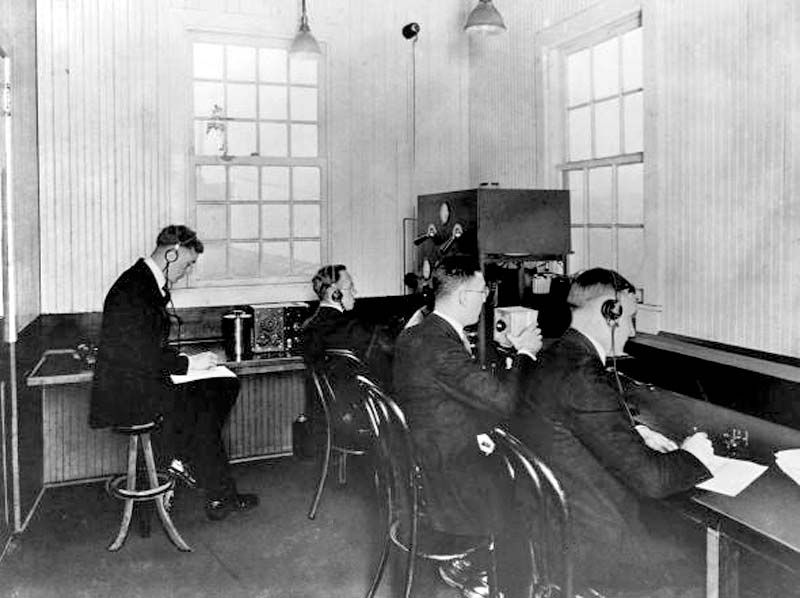Have you ever wondered about the impact radio has had on Surinamese society? Radio has been a powerful medium that has influenced and shaped the culture of Suriname throughout its history. In this article, we will delve into the role of radio in Surinamese society, exploring its evolution, its significance, and its current state.
Radio has played a significant role in shaping Surinamese society, serving as a source of information, entertainment, and cultural expression. In the early days of radio, it was a means of connecting people across vast distances and bringing them together. It provided a platform for news, music, and storytelling, enabling people to stay informed and entertained. As the years went by, radio stations in Suriname expanded their programming to cater to a diverse audience, offering a wide range of content such as talk shows, music programs, and educational broadcasts. Today, radio continues to be a popular medium, although it has faced challenges from other forms of media, such as television and the internet. In the upcoming article, we will take a closer look at the evolution of radio in Suriname and how it has shaped the values, traditions, and identity of the Surinamese people. Stay tuned to learn more!

Introduction
Radio technology has played a significant role in the development and communication of Suriname, a small country in South America. Since its introduction in the early 20th century, radio broadcasting has had a profound impact on various aspects of Surinamese society. It has shaped national identity, disseminated information, entertained the masses, and even influenced political discourse. In this article, we will explore the early development of radio in Suriname, its role in shaping national identity, political influence, the broadcasting of sports and entertainment, community engagement, language diversity, education, challenges faced by Surinamese radio, and its resilience and adaptation in the digital age. Through this historical overview, we hope to gain a deeper understanding of the significance of radio in Surinamese society.
Early Development of Radio in Suriname
The introduction of radio technology in Suriname marked a significant advancement in communication. In the early 1900s, radio technology was rapidly evolving worldwide, and Suriname was quick to embrace this new medium. Although the exact year of the introduction of radio in Suriname is not known, it is believed to be sometime in the 1920s. Initially, radio receivers were only accessible to a privileged few, but with the passage of time, it became more affordable and widespread.
Establishment of the First Radio Station in Suriname
The establishment of the first radio station in Suriname further accelerated the popularity and influence of radio in the country. The first station, named ‘Radio Paramaribo’, was founded in 1939 and became a gateway for Surinamese society to connect and engage with each other. With the launch of Radio Paramaribo, the radio broadcasting industry in Suriname began to flourish, leading to the emergence of a new era in communication.
Impact of Radio on Communication in Suriname
Radio had a revolutionary impact on communication in Suriname. Prior to the introduction of radio, communication was largely limited to written letters and telegrams. However, radio allowed for the real-time transmission of voice and music, breaking down the barriers of distance and time. This instant form of communication not only brought people closer together but also provided a platform for entertainment and information dissemination.
Radio Broadcasting during the Colonial Era
During the colonial era, radio broadcasting in Suriname was subject to control and censorship by the colonial authorities. The content broadcasted on radio was strictly regulated, and any form of dissent or criticism against the colonial rule was suppressed. Despite the control imposed by the colonial authorities, radio played a significant role in disseminating propaganda during World War II, shaping public opinion, and preserving Surinamese culture.
Control and Censorship of Radio Content under Colonial Rule
Under colonial rule, the content aired on radio stations was heavily controlled to maintain colonial dominance and suppress dissent. Any information or opinions that challenged the colonial authority were strictly censored. This control over radio content further fueled the desire for independence among Surinamese citizens, as they sought alternative means to express their grievances.
Role of Radio in Disseminating Propaganda during World War II
During World War II, Suriname, as a colony of the Netherlands, was directly affected by the conflict. Radio played a crucial role in disseminating propaganda during this period. The colonial authorities utilized radio as a tool to influence public opinion, support the war efforts of the allied forces, and maintain morale within the Surinamese population. The radio became a powerful medium for shaping public sentiment and mobilizing support for the war.
Radio as a Tool for Cultural Preservation during Colonial Times
While radio was heavily regulated under colonial rule, it also served as a means to preserve Surinamese culture. Radio stations introduced cultural programming to showcase Surinamese music, language, and folklore. This programming provided a platform for artists and musicians to promote their work and preserve Surinamese cultural heritage amidst the dominant Dutch colonial influence. Radio became an essential tool for celebrating and nurturing Surinamese identity.
Radio and National Identity in Suriname
As a country with a rich multicultural heritage, Surinamese national identity has been shaped by various factors, including radio broadcasting. The emergence of Surinamese cultural programming on radio played a crucial role in fostering a sense of national identity among Surinamese citizens. Radio provided a platform for the representation and celebration of Surinamese music, language, and folklore, contributing to the collective identity of the nation.

Emergence of Surinamese Cultural Programming on Radio
With the growing popularity and influence of radio in Suriname, local artists and musicians started to gain recognition through radio airplay. Surinamese cultural programming on radio allowed artists to showcase their talent, promoting the diversity and richness of Surinamese music and culture. Listeners across the country could tune in to radio broadcasts featuring traditional Surinamese music, interviews with local artists, and discussions on cultural topics.
Role of Radio in Shaping Surinamese National Identity
Radio played a vital role in nurturing and shaping Surinamese national identity. Through its programming, radio stations emphasized the country’s cultural heritage, language, and traditions, instilling a sense of pride in Surinamese citizens. By showcasing the diversity of Surinamese society, radio played a significant role in uniting different ethnic groups under a shared national identity.
Representation of Surinamese Music, Language, and Folklore on Radio
Surinamese radio has been instrumental in promoting and preserving the country’s music, language, and folklore. Radio stations dedicated airtime to local musicians, ensuring that Surinamese music received exposure and recognition. Surinamese folklore and traditions were also represented on radio through storytelling, folk songs, and discussions on cultural practices. As a result, radio became a powerful medium for preserving and promoting Surinamese cultural heritage.
Political Influence on Radio Programming
Radio has often been used as a platform for political propaganda and discourse in Suriname. Its influence on shaping public opinion and mobilizing support has made it a valuable tool for politicians. However, this political influence has also led to censorship and suppression of opposing views on the airwaves.
Radio as a Platform for Political Propaganda
Throughout Suriname’s history, political parties have utilized radio as a platform for spreading their ideologies and agendas. Political propaganda, in the form of speeches, interviews, and campaign messages, has played a significant role in mobilizing support and shaping public opinion. Radio has proven to be an effective medium for reaching the masses and influencing their political choices.
Censorship and Suppression of Political Discourse on Radio
Despite radio’s potential for political discourse, authorities have frequently censored and suppressed dissenting voices on the airwaves. During periods of political instability or repression, radio stations were often controlled or forced to conform to government agendas. This control over radio content has been a challenge to the freedom of expression and the open exchange of ideas.
Radio’s Role in Mobilizing and Influencing Public Opinion
Radio has been instrumental in mobilizing and influencing public opinion in Suriname. By broadcasting political speeches, debates, and discussions, radio has provided citizens with the information necessary to form their political beliefs and participate in the democratic process. This role of radio in shaping public sentiment has made it a powerful force in Surinamese politics.
Sports and Entertainment on Radio
In addition to its role in communication and politics, radio has also played a significant role in broadcasting sporting events and providing entertainment to the masses. The ability to listen to live sports commentary and enjoy music and drama programs has made radio an indispensable source of entertainment during Suriname’s development.
Broadcasting of Popular Sporting Events on Radio
Radio has played a vital role in bringing live sporting events to the homes of Surinamese citizens. Whether it be football matches, cricket tournaments, or athletics competitions, radio broadcasts have allowed sports enthusiasts across the country to follow their favorite teams and athletes. Through detailed live commentary, radio has created a sense of excitement and engagement among sports fans.

Radio as a Source of Entertainment during Suriname’s Development
During phases of Suriname’s development, radio served as a primary source of entertainment, providing the population with music, drama, and other forms of artistic expression. Radio programming included music shows, comedy skits, radio plays, and interviews with artists. This diverse range of entertainment options kept the population engaged and connected with the arts and culture.
Impact of Radio on Surinamese Arts and Culture
Radio has had a profound impact on Surinamese arts and culture. By promoting local musicians, providing a platform for artistic expression, and broadcasting cultural programming, radio has played a significant role in the growth and development of Surinamese arts. Surinamese musicians and artists have gained recognition and a fan base through radio exposure, contributing to the overall vibrancy of the country’s artistic scene.
Community Engagement through Radio
Radio has long served as a medium for community engagement in Suriname. It has played a crucial role in promoting community events and initiatives, disseminating public service announcements, and fostering social cohesion. The ability to reach a wide audience has made radio an effective tool for nurturing communities and mobilizing collective action.
Radio’s Role in Promoting Community Events and Initiatives
Radio stations in Suriname have actively promoted community events and initiatives. Whether it be local festivals, charity drives, or awareness campaigns, radio has served as a platform for organizers to reach a broad audience and generate participation. By broadcasting event details, interviews, and related content, radio has facilitated community engagement and encouraged active citizenship.
Use of Radio for Public Service Announcements and Civic Education
Radio has been instrumental in disseminating public service announcements and facilitating civic education in Suriname. Government agencies and nonprofit organizations use radio to convey important information regarding public health, safety measures, and community services. Furthermore, educational programs aired on radio have helped raise awareness and promote literacy, particularly in rural areas.
Radio’s Contribution to Social Cohesion in Surinamese Society
Radio has made a significant contribution to social cohesion in Surinamese society. By providing a platform to discuss social issues, share diverse perspectives, and celebrate cultural traditions, radio has played a crucial role in fostering understanding and unity. The ability of radio to reach various communities and bridge gaps in communication has helped build a more cohesive Surinamese society.
Radio and Language Diversity
Suriname is known for its linguistic diversity, with several languages spoken throughout the country. Radio has played a vital role in the preservation of indigenous languages, the promotion of multilingualism, and the standardization and revitalization of languages.
Preservation of Indigenous Languages through Radio
Radio has played a crucial role in preserving and promoting indigenous languages in Suriname. By providing airtime for programming in indigenous languages, radio stations have helped keep these languages alive and raise awareness about their cultural importance. This inclusivity and support have been vital in the preservation and revitalization of indigenous languages.
Multilingual Programming on Surinamese Radio
Surinamese radio stations have actively embraced multilingual programming to cater to the diverse population. Radio programs are broadcasted in various languages, including Dutch, Sranan Tongo, Hindustani, Javanese, and indigenous languages. This commitment to multilingualism has given a voice to different communities and strengthened linguistic diversity in Surinamese society.

Role of Radio in Language Standardization and Language Revitalization
Radio has played a significant role in the standardization of languages and the revitalization of marginalized languages. Language experts and educators use radio as a platform to promote correct language usage, grammar, and vocabulary. This focus on language standards has not only improved communication but has also empowered communities to preserve their language heritage.
Radio’s Influence on Education and Literacy
Radio has had a substantial influence on education and literacy rates in Suriname. Particularly in remote areas with limited access to schools and educational resources, radio has provided a lifeline for educational programming, promoting lifelong learning opportunities.
Educational Programming on Radio for Remote Areas
Radio has been instrumental in bringing educational programming to remote areas in Suriname. Through lessons, educational content, and interviews with experts, radio has facilitated learning opportunities for students who may have limited access to traditional educational resources. Radio programs have covered various subjects, including mathematics, science, languages, and cultural studies, catering to a wide range of educational needs.
Radio’s Impact on Literacy Rates in Suriname
Radio’s contribution to literacy rates in Suriname cannot be underestimated. Through interactive educational programs, radio has played a crucial role in promoting reading, storytelling, and language skills among the population. Programs specifically designed to enhance literacy have empowered individuals to develop essential reading and writing skills, contributing to improved literacy rates across the country.
Role of Radio in Promoting Lifelong Learning
Radio serves as a medium for promoting lifelong learning in Suriname. By broadcasting educational programs, interviews with experts, and discussions on various topics, radio encourages continuous learning and personal development for individuals of all ages. Radio’s accessibility and ability to provide information and knowledge have made it an invaluable tool for promoting ongoing education.
Challenges Faced by Surinamese Radio
Surinamese radio has faced numerous challenges throughout its history, including government control and ownership of radio stations, financial constraints, and competition from television and the internet.
Government Control and Ownership of Radio Stations
Government control and ownership of radio stations have been a challenge for the independent operation of radio in Suriname. The government’s role in regulating and overseeing broadcast content has often limited the freedom of expression and diversity of ideas on the airwaves. The concentration of ownership in the hands of a few powerful entities has also restricted competition and innovation within the radio industry.
Financial Constraints and Sustainability Issues
Financial constraints have posed significant challenges to Surinamese radio stations. Limited advertising revenue, coupled with the high costs of equipment, programming, and licensing, have strained the financial sustainability of many radio stations. As a result, some stations have had to reduce their programming or shut down altogether, limiting the diversity and availability of radio content.
Competition from Television and Internet
The emergence of television and the internet has presented substantial competition for Surinamese radio stations. As these new mediums gained popularity, radio stations had to adapt to changing consumer preferences and consumption patterns. Radio has had to find unique ways to differentiate itself from other media sources to maintain its relevancy in the digital age.

Radio’s Resilience and Adaptation
Despite the challenges faced, Surinamese radio has shown resilience and adaptability over the years. It has embraced technological advancements, diversified its formats and content, and maintained its relevance in the midst of changing media landscapes.
Shift to Digital Broadcasting and Online Streaming
Radio in Suriname has embraced the shift to digital broadcasting and online streaming. As technology evolved, radio stations began transmitting their broadcasts digitally, reaching a wider audience and ensuring better sound quality. Online streaming has also allowed radio stations to extend their reach beyond traditional radio frequencies and connect with listeners worldwide.
Diversification of Radio Formats and Content
To remain relevant and attract a diverse audience, Surinamese radio stations have diversified their formats and content. Stations now offer a wide range of programming, including music, news, talk shows, and specialized content catering to specific interests or demographics. By catering to a diverse range of preferences, radio stations have expanded their listener base and increased their impact in Surinamese society.
Radio’s Continued Relevance in the Digital Age
Despite the emergence of new media platforms, Surinamese radio has remained relevant in the digital age. The accessibility and portability of radio make it an attractive medium for those without access to the internet or television. Radio’s ability to provide real-time information, entertain, and create a sense of community keeps it an essential part of Surinamese society.
Radio’s Role in Times of Crisis
During times of crisis, radio has played a crucial role in emergency broadcasting, disaster communication, and providing emotional support to the population. Its reliability, widespread availability, and ability to reach remote areas have made it an essential tool for crisis management and public safety.
Emergency Broadcasting and Disaster Communication
When natural disasters or emergencies occur, radio serves as a lifeline for affected communities. Radio stations provide real-time updates, evacuation instructions, and information on relief efforts. The ability to reach a wide audience, including those without internet or television access, makes radio indispensable during times of crisis.
Radio’s Contribution to Crisis Management and Public Safety
Radio’s role in crisis management and public safety cannot be overstated. During emergencies, radio stations collaborate with government agencies, disaster management teams, and emergency services to disseminate critical information and coordinate relief efforts. Radio’s ability to reach a wide audience quickly and efficiently ensures that vital safety messages are delivered to those in need.
Radio’s Role in Providing Emotional Support during Difficult Times
In times of crisis, radio also serves as an emotional support mechanism for the population. Radio stations provide a platform for listeners to share their experiences, express their concerns, and communicate with others going through similar situations. This sense of community and support helps individuals cope with difficult times and promotes resilience within the population.
Access and Influence of Radio in Rural Areas
Radio plays a vital role in rural areas of Suriname, where access to other forms of media may be limited. Despite the challenges posed by rural infrastructure and connectivity, radio serves as a trusted source of news, information, and entertainment for remote communities.
Radio’s Importance for Rural Communities with Limited Infrastructure
Rural communities in Suriname often face challenges in terms of infrastructure and access to modern communication facilities. Radio bridges this gap by providing a reliable and accessible source of information, entertainment, and community engagement. Radio’s ease of use and affordability make it an indispensable medium for rural areas with limited infrastructure.
Radio as a Medium for Accessing News and Information in Remote Areas
Radio has proven to be a crucial medium for providing news and information to remote areas in Suriname. Whether it be updates on current affairs, weather forecasts, or community announcements, radio ensures that individuals living in rural regions have access to important information that may otherwise be challenging to obtain.
Radio’s Influence on Rural Development and Empowerment
Radio’s influence on rural development and empowerment cannot be understated. By providing information on agriculture, health, education, and other vital topics, radio stations play a significant role in promoting rural development. Furthermore, radio helps empower rural populations by giving them a voice, allowing them to express their concerns, and participate in community initiatives.
Future of Radio in Surinamese Society
Looking ahead, the role of radio in Surinamese society is expected to expand and evolve. Technological advancements, innovation, and changing consumer preferences will play a significant role in shaping the future of radio in Suriname’s media landscape.
Expanding Role of Radio in Suriname’s Media Landscape
As technology continues to advance, radio in Suriname is expected to expand its role in the media landscape. Radio stations will further embrace digital broadcasting, online streaming, and podcasting to reach a broader audience and cater to changing consumer behaviors. The convergence of radio with other media platforms will create new opportunities for engaging audiences and delivering differentiated content.
Innovation and Technological Advancements in Radio Broadcasting
Innovation and technological advancements will drive the future of radio in Suriname. From improved transmission technology to interactive features and personalized content, the radio industry will continue to leverage emerging technologies to enhance the listener experience. Augmented reality, voice-activated devices, and integration with social media platforms are just a few areas of potential innovation within the Surinamese radio industry.
Radio’s Potential for Supporting Social, Cultural, and Economic Development
Radio’s potential for supporting social, cultural, and economic development in Suriname remains significant. By leveraging its wide reach, radio stations can continue to promote cultural heritage, provide educational opportunities, and disseminate vital information for rural communities. Moreover, radio’s ability to foster inclusivity, dialogue, and unity will contribute to the ongoing development and cohesion of Surinamese society.
Conclusion
The role of radio in Surinamese society has evolved significantly over the years. From its early development to its present-day influence, radio has played a vital role in shaping national identity, disseminating information, and fostering community engagement. Despite facing challenges, radio has demonstrated resilience and adaptability, maintaining its relevance in the digital age. As we look to the future, radio in Suriname will continue to evolve, embracing technological advancements and innovating to meet the changing needs of its listeners. The historical overview presented in this article highlights the historical significance of radio in Surinamese society and its ongoing importance in promoting cultural heritage, national identity, and social cohesion.
